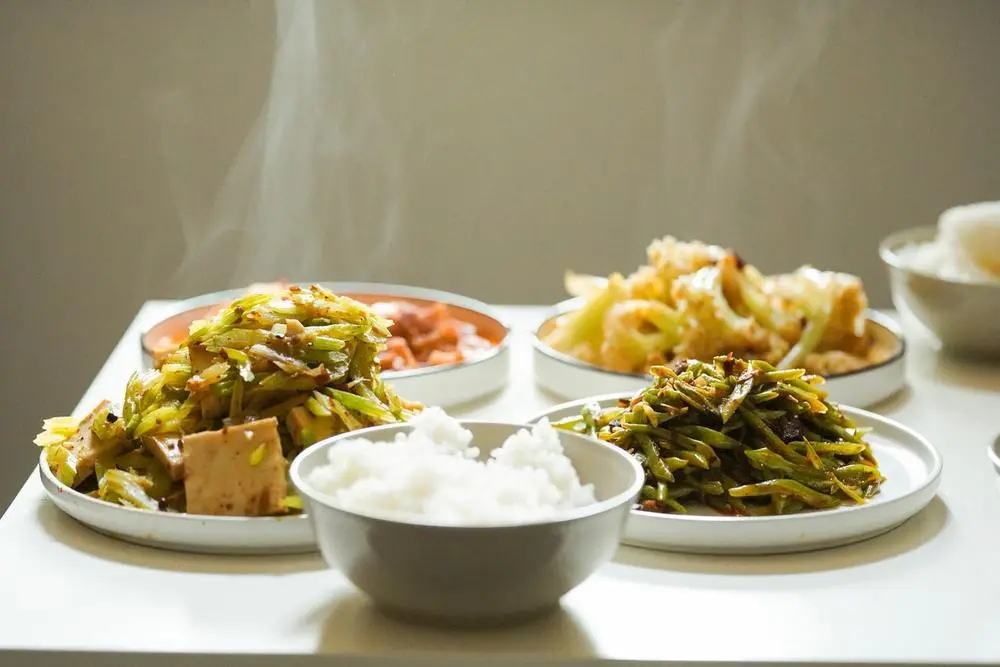By improving your nutrition, that means, adopting a balanced diet you can definitely lose weight just by eating healthy. Actually, there’s no way to get rid of those extra pounds if you skip eating healthy.
Can I lose weight just by eating healthy?
Yes, as we said, a balanced diet is all you need to start losing weight. So when you ask yourself this question again, have in mind that the only thing that separate you from seeing result is the reluctance to embrace a good nutrition.
That’s the moment when you have to be courageous and once and for all, start eating healthy. You would be surprise to see how many people have lost weight by just changing a little bit their eating habits.
It’s not so difficult to do. It can be hard at the beginning because old habits die hard. I mean, who can skip those juicy donuts in the afternoon and fast food each night?
So, it’s understandable that you body is accustomed to it. But our health is priceless. It must be our priority. So having an ideal weight is the foundation to guarantee a good health.
Can you lose weight just by eating healthy and not working out?
Yes, to some extent you can lose weight without exercising, specially when you want drop off some few pounds. But if you are overweight, or want to lose a great deal of weight, exercising should an important element in your journey.
Also, we recommend that you work out if you want to lose weight fast. When you exercise, your body burns more calories. And this is helpful because essentially, losing weight relies on your ability to burn more calories than you consume.
In other words, the mayor problem that causes gaining weight in the form of belly fat is that you eat a lot of food that contains a great number of calories. And given the fact that you don’t exercise, the extra calories (that you don’t burn) are stored in your body and turn into fat.
How to eat healthy
Now that you know how important is to eat healthy, we’re going to give you some tips to start preparing healthy journy eating to lose weight:
Add vegetables to your lunch and dinner
Vegetables should always be the main portion of lunch and dinner because they increase the feeling of satiety, in addition to having few calories, favoring weight loss. Serving can range from 1 to 2 cups of raw vegetables or 1 cup of cooked vegetables.
In addition to this, vegetables are rich in fiber, vitamins and minerals, which help improve the functioning of the intestine, promote the health of the intestinal flora, stimulate metabolism and help detox the body, providing energy and increasing the feeling of welfare.
Make sure to add small portions of carbohydrates to your meals
The consumption of small portions of carbohydrates, preferring them whole or rich in fiber, such as bread, pasta and brown rice, quinoa or beans.
As the amount that should be served on the plate varies from one person to another, you can start by gradually reducing the portions that are served, if you place 6 tablespoons of rice soup, start by reducing the portion to 5 and then to 4.
In addition to this, you can substitute zucchini pasta or stuffed or roasted eggplant for pasta, looking for other alternatives to reduce carbohydrate consumption.
It is also possible to substitute wheat flour for other types of flours that contain more fiber to prepare pancakes, cakes, cupcakes and cookies, such as oatmeal, coconut or almond flour.
Add protein to your snacks
It is very common for most people to eat only fruit, toast or bread with coffee for snacks. But the best approach would be to vary more and include protein, because they use up more energy to be digested and increase the “Feeling of full”.
Some examples for snacks are:
- 1 slice of whole wheat bread with 1 egg and 1 slice of cheese.
- plain yogurt with a handful of walnuts.
- whole wheat pancakes with banana.
- cinnamon and oatmeal.
- 2 to 3 wholegrain toast with tuna.
- a cup of fruit jelly.
- fruit smoothie with a handful of almonds.
Don’t stuff yourself with fruits
Although they are healthy, fruits also contain calories and some of them are easily digested. Therefore, instead of eating 2 or 3 fruits in a single meal, it is best to eat 1 fruit with a handful of nuts or with natural yogurt. In this way, good fats and proteins are added, making the meal more nutritious.
The ideal is to consume whole fruit instead of juices, as whole provides fiber that helps maintain intestinal health, and increase the feeling of satiety. We also recommend to consume at least 2 to 3 servings of fruits a day.
Low-fat protein
Protein as mentioned is important for the weight loss process by increasing satiety, promoting the formation of muscle mass. For this reason, the best thing is to include white meats such as chicken and turkey without skin, fish and, in the case of red meats, prefer lean cuts, meaning they do not have visible fat.
In addition to this, you can also consume eggs, low-fat white cheeses such as ricotta or Mozarella and milk and its skimmed derivatives. Other foods that are a rich source of protein are legumes such as beans, lentils and chickpeas, which combined with rice can form good quality protein.
Olive oil, nuts and seeds
These foods are rich in good fats and omega-3, so they exert anti-inflammatory and antioxidant action and increase satiety, helping the body to function better.
This group also includes foods such as: avocado, salmon, trout, sardines, tuna, coconut, peanuts, almonds, Brazil nuts, hazelnuts, peanut butter, pipes and walnuts.
To include them in the diet, add a teaspoon of raw olive oil to your lunch and dinner plates. For snacks, you can eat 1 fruit with 10 units of nuts or 1 tablespoon of peanut butter.
You could also prepare smoothies with avocado and add flaxseed, chia, sesame or pumpkin seeds, for example, to salads or cereals, eggs and yogurt.
Drink water daily
It is important to consume between 2 to 2.5 L of water a day. The ideal is not to ingest liquids together with the food, to avoid filling up and not consuming the corresponding portions of the food.
An excellent option is to drink water with lemon, as it helps to cleanse the palate and reduces the desire to eat very sweet foods.

David is a writer and graduate professor. He writes for different websites. With 7+ years of experience in writing and education, David has combined his expertise in teaching with his passion for physical and mental wellness. He researches and writes to bring you valuable information about weight loss, nutrition, fitness, community, society and more.




